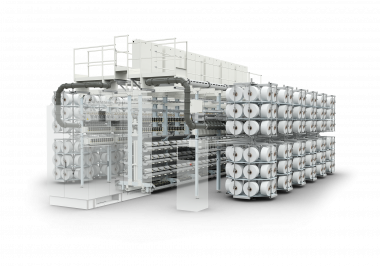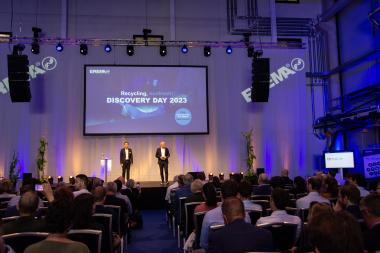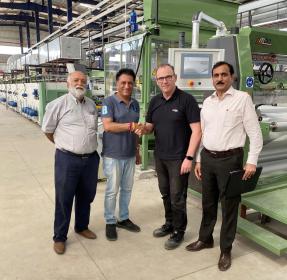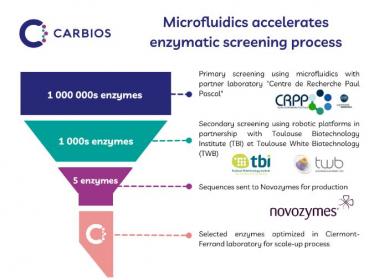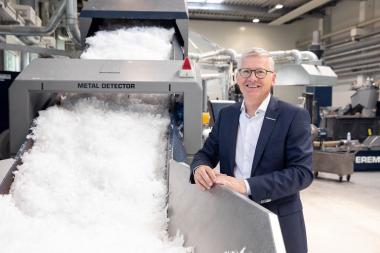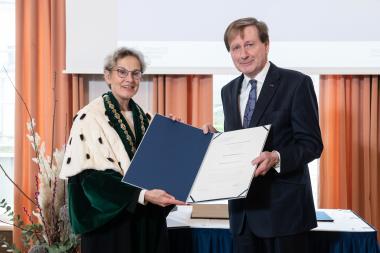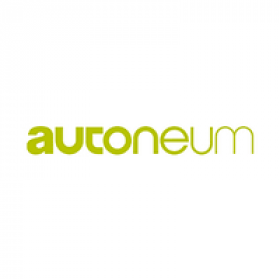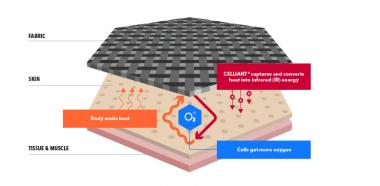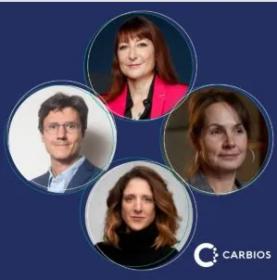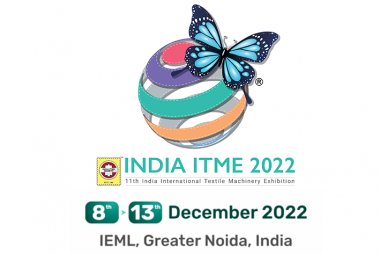VDMA Textile Machinery: Planned PFAS ban threatens important textile machine components
The EU's planned ban on the entire group of per- and polyfluoroalkyl substances (PFAS) would endanger many industrial processes, states VDMA Textile Machinery. Textile manufacturing would be affected twice – by missing important chemicals for technical textile production and by the lack of indispensable textile machine components. The latter would affect the whole supply chain from textile machinery manufacturers and its suppliers to the textile industry in the EU.
Solid PFAS parts are widely used in textile machinery production, especially where extreme conditions prevail. Verena Thies, Managing Shareholder Thies GmbH & Co. KG, explains: “Our textile dyeing machines are world leaders and set standards in efficiency and sustainability. They work under pressure at temperatures of up to 140° C using highly acidic, highly basic and/or oxidative or even reductive chemicals. This is precisely why PFAS is needed, for example, in seals and rings, flaps as well as valves for a long-lasting and high-quality machine concept – because there are no alternatives with qualitatively equivalent properties. In addition, PTFE semi-finished products enable a sliding and gentle contact with the textile fabric in ecologically important techniques in the transformation of textile wet finishing."
PTFE and also FKM are fluoropolymers (fluoroplastics and fluoroelastomers), a group within the broad PFAS range of about 10,000 substances which would be banned for production, use and sale in the EU. They are high-tech materials, and as so-called "polymers of low concern" are not a danger to the environment, according to the OECD. Furthermore, these components are installed inside a machine and exchanged or disposed of properly. PFAS such as PTFE and FKM must be exempted from the ban, demands the VDMA in its position paper.
"In this way, the association also supports the approach taken in Great Britain. With the 10,000 substances, everything is lumped together, although the various PFAS groups are very different," warns Dr Sarah Brückner, Head of VDMA Environmental Affairs and Sustainability. "We should take our cue from the UK and look at the substance groups in a differentiated way."
Apart from several types of dyeing machines, PFAS components are indispensable in textile drying machines (e.g., conveyor dryers, tumblers and stenters) and damping machines. They are also used in fully automatic chemical dispensing systems and pressure vessels for thermochemical treatment of textile recycling material, heat recovery systems and wastewater treatment technology. This means that a lot of machines needed for a sustainable textile production would be affected by the PFAS ban.
VDMA Textile Machinery will take part in the ongoing EU public consultation. The association will describe indispensable key functionalities and conditions of use in the textile machinery sector as well as the consequences for the companies and the customers in the EU if the ban is imposed. The consultation ends on September 25, 2023, and VDMA urged its members affected by the planned restriction to participate in the consultation at an early stage. This is the only way to ensure that the broad scope of the mechanical and plant engineering sector is represented.
VDMA e. V.
Textile Machinery










